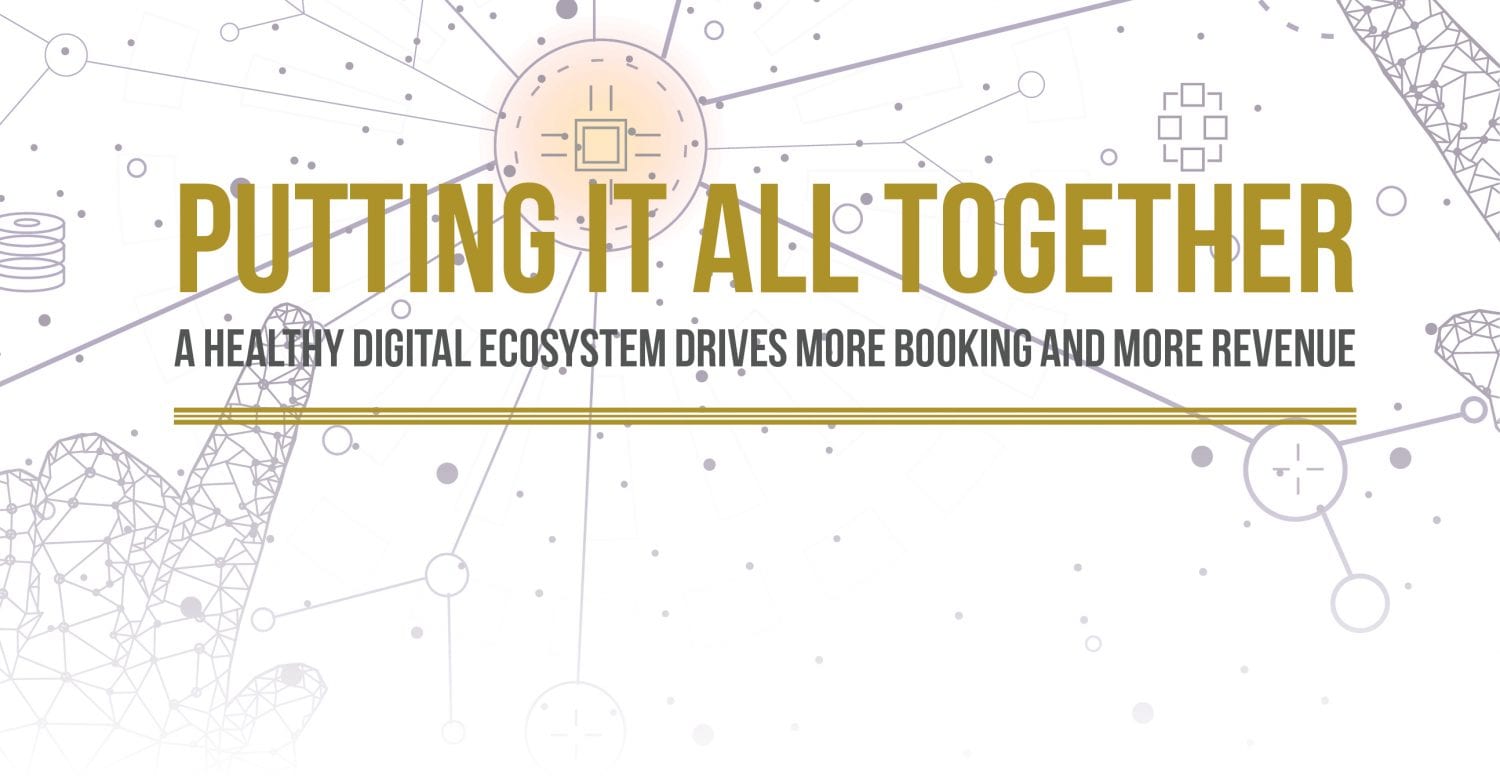If it’s possible to find a silver lining in the cloud that was 2020, the resilience of the vacation rental industry might be it. Last year, vacation rentals stepped into the spotlight, offering travelers the safest and most responsible way to escape during the uncertainties of the pandemic. Traveler awareness of vacation rentals is at an all-time high. With that in mind, how do you ensure your business can capitalize on the increased attention?
The answer is this: with a strong digital ecosystem. In the competition to attract the modern traveler—who wants to research and book their vacation rental quickly and easily online—a robust direct-booking website is only the first element of a successful strategy. Companies rising to the forefront of our industry utilize a diverse, multifaceted ecosystem to drive travelers to their brand.
“I tell vacation rental managers that a customer-centric direct-booking website is like a high-performance sports car. Sure, you want it to be beautiful and have all the latest bells and whistles, but what you really want is a car that goes from 0 to 60 in seconds flat. And you can’t get off the start line without fuel,” says Bluetent’s senior sales executive, Alisa Justice. “Strategic digital marketing efforts and targeted email campaigns are the fuel for your website and direct-booking strategy.”
Focusing on direct bookings alone, however, would leave your digital ecosystem unbalanced. Connecting to online travel agencies (OTAs) via an efficient channel management tool diversifies your booking strategy. “Online marketplaces are here to stay, so putting your listings on OTAs—and on Google’s new Vacation Rentals platform—is basically future-proofing your business,” Justice states.
But why call it an ecosystem? Brynn Flaherty, Bluetent’s director of marketing services, explains, “We’ve found these components—SEO, digital advertising, distribution, email campaigns, and more—amplify each other. With everything working together, one plus one really can equal three when it comes to driving bookings and revenue.”
There are endless examples to illustrate the revenue-generating power of a healthy digital ecosystem. Two of the most recognizable are the billboard effect and the assisted conversion.
The Billboard Effect
For years, studies have shown that although most vacation rental guests start their accommodations search by looking at properties on an OTA, a relatively small percentage go on to book through that channel. That means a large number of travelers are viewing OTA listings as advertisements—or billboards—eventually leading them to a direct booking.
How do you make sure that a traveler searching OTAs later finds your brand for a direct booking—especially on channels that don’t list your company’s name? It’s tricky, but your digital ecosystem makes it possible, according to Bluetent’s vice president of product Tom Kenyon.
“There are two important factors here,” Kenyon explains. “First, you need a channel manager that communicates effectively with both your PMS and the OTA. That way, the traveler sees the same property details, photos, and availability when they view your OTA listing and again when they see it on your website. Second, you need a website with robust search functionality. If a traveler found your four-bedroom, pet-friendly lakefront home with a hot tub on the OTA, you want them to be able to quickly conduct a detailed search using those same parameters from your home page.” In summation, Kenyon says, “The easier you make it for travelers to find exactly what they’re looking for, the greater the chance they’ll click the ‘book now’ button.”
The Assisted Conversion
A study by Verto Analytics found that a traveler goes through an average of 45 touchpoints on their way to purchasing accommodations. Every one of those touchpoints assists in converting a looker to a booker. “We now have data that tracks each step in a traveler’s decision-making process,” says Flaherty.
“As an example, if your brand has invested in SEO and content creation, a traveler might find your website through an organic search for vacation rentals. While on your website, maybe the traveler views a few properties and signs up for your e-newsletter through a pop-up window.” Flaherty continues, “That single interaction with your website allows the rest of your digital ecosystem to kick into gear. Your digital advertising cam¬paign can now follow the traveler around the internet with ads showing properties they’ve viewed. You can also deploy a targeted email campaign that sends promotions or news their way. All these touchpoints give the traveler the information and confidence they need to book one of your properties.”
Does your online presence grab the attention of the modern traveler? With both a healthy digital ecosystem and diverse marketing strategy at play, your vacation rental business can turn the lessons of 2020 into the successes of 2021—regardless of what the future brings. Interested in learning more? Our experts are here to help. Contact Bluetent at (970) 340-4400.


